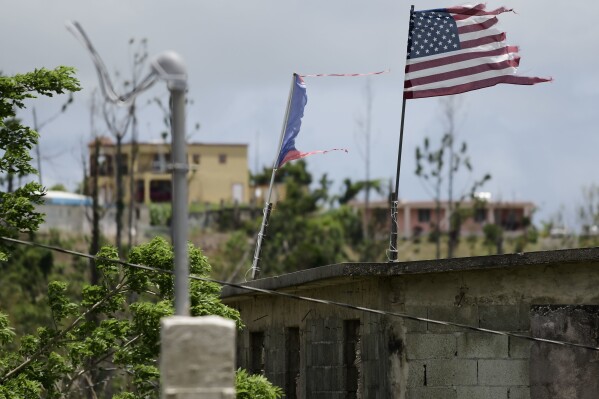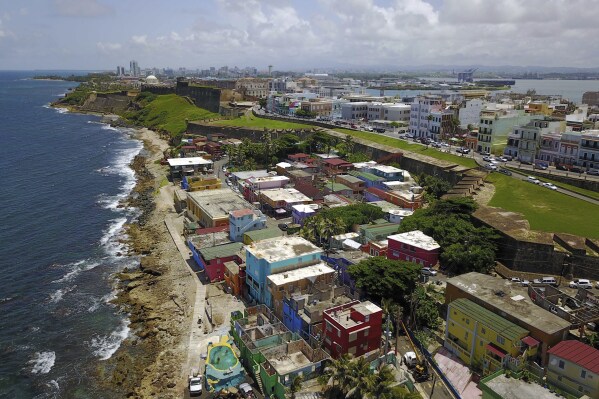Contract between Puerto Rico’s government and coal-fired plant operator leaves residents in the dark
SAN JUAN, Puerto Rico (AP) — A proposed amended contract between Puerto Rico’s government and the operator of a coal-fired power plant accused of contaminating low-income communities on the island drew scrutiny Monday during a heated public hearing.
Environmentalists and lawyers demanded to see the redacted details of the proposed amendments sought by AES Puerto Rico LP as they accused officials during the hearing held by Puerto Rico’s Energy Bureau of withholding key information that would affect those living in the U.S. territory.
“It can say anything under those blackouts,” said Víctor Alvarado, environmental affairs secretary for the Puerto Rican Independence Party.
“This is like a blank check,” added Myrna Conty Hernández, an environmentalist and community leader.
 The flu is soaring in seven US states and rising in others, health officials say
The flu is soaring in seven US states and rising in others, health officials say
 Judge’s ruling advances plan to restructure $10 billion debt of Puerto Rico’s power company
Judge’s ruling advances plan to restructure $10 billion debt of Puerto Rico’s power company
 US announces $440 million to install solar panels on low-income homes in Puerto Rico
US announces $440 million to install solar panels on low-income homes in Puerto Rico
If approved, the amended contract would go into effect Dec. 1. It is expected to lead to an increase in power bills that are already among the highest of any U.S. jurisdiction and award more money to a company that has come under the scrutiny of the U.S. Environmental Protection Agency. The EPA is testing air and water in the region.
The Energy Bureau is expected to issue a decision in the coming days. A bureau spokeswoman said it does not comment on cases that are under review.
An AES spokesman did not immediately return a message seeking comment.
The amended contract already was approved by the governing board of Puerto Rico’s Electric Power Authority, which said the details are confidential because the contract still had to be approved by the Energy Bureau and a federal control board that oversees the island’s finances.
Puerto Rico’s power company has said that AES is facing “severe” financial issues and warned that if the company ceases to operate, the island’s already crumbling electric grid would be further destabilized and power bills would spike.
AES produces about one-quarter of Puerto Rico’s power via its coal-fired power plant in the southeast coastal town of Guayama.
Medical doctors have testified in public hearings that they’ve seen a “significant” increase in various types of cancers and other diseases in that region since the plant began operating.
“Approving this contract is mocking the victims,” said José Santos, with a local religious group. “Who is helping the citizens?”
The contract dating from 1994 has been amended twice. Among the new proposed amendments are details of a “green transition stabilization payment” and a plan to convert the Guayama coal plant to green energy, including the location of such projects. Such details have been redacted.
Attorney Ruth Santiago stressed that residents have a right to more information since public funds are involved.. She told Monday’s hearing that unrelated large-scale solar projects have led to an increase in flooding in some Puerto Rico communities and were built on agricultural land.
“These are issues that are going to affect them,” she said. “Instead of comments, we have questions.”
The contract calls for the closure of the coal generation plant by December 2027 as the island seeks to lessen its dependence on petroleum and transition to clean energy. Petroleum accounts for more than half of the island’s total energy use, according to the U.S. Energy Information Administration.
Disclaimer: The copyright of this article belongs to the original author. Reposting this article is solely for the purpose of information dissemination and does not constitute any investment advice. If there is any infringement, please contact us immediately. We will make corrections or deletions as necessary. Thank you.


